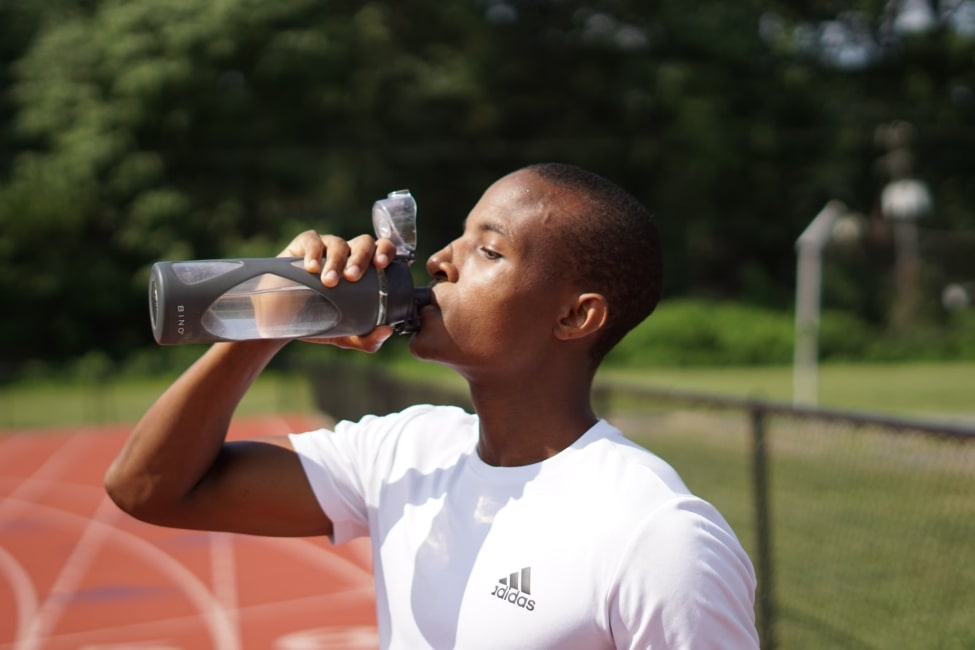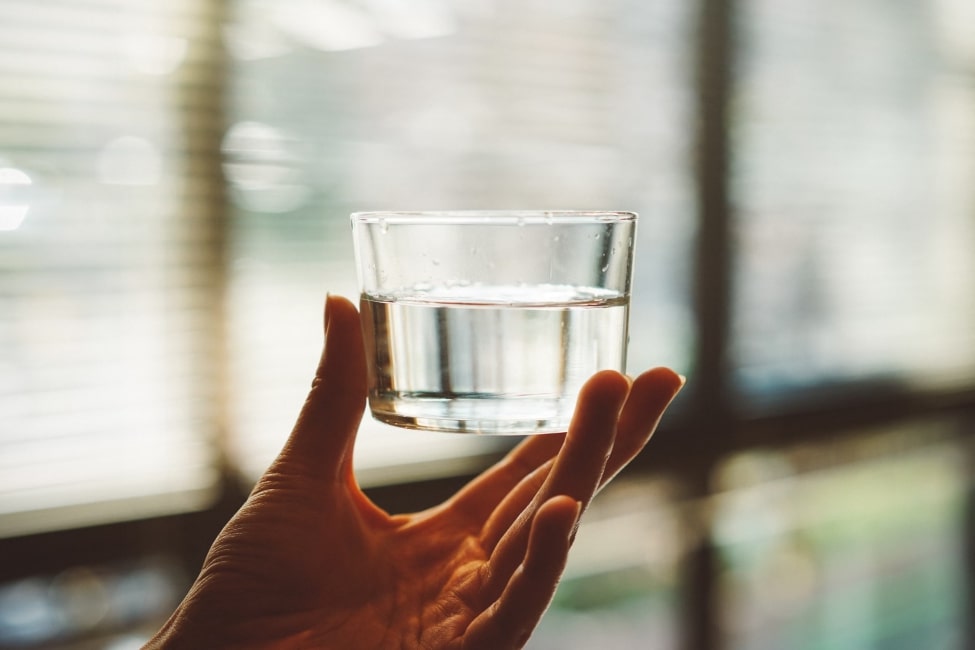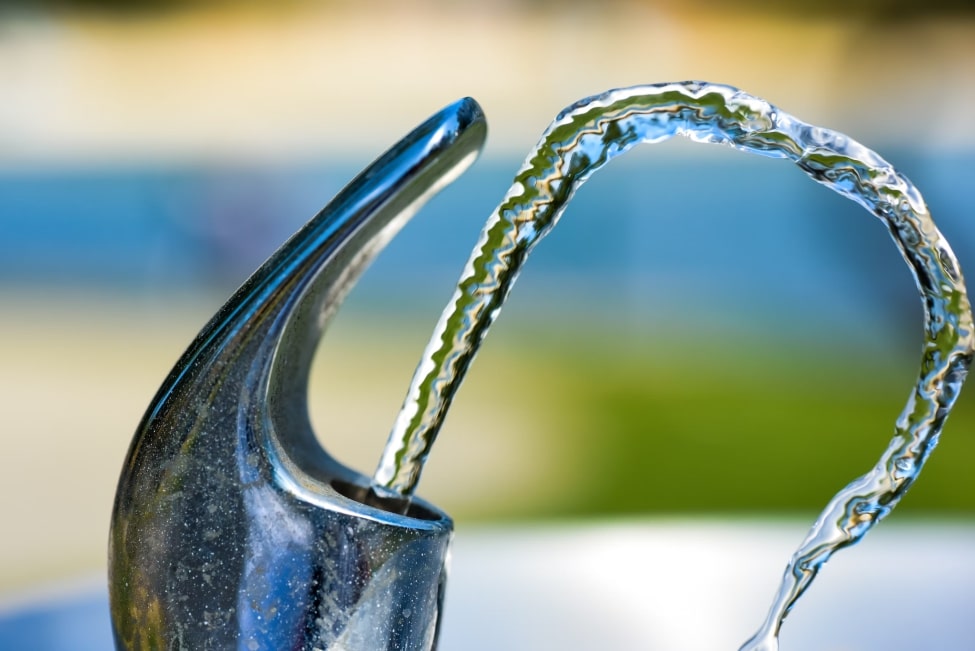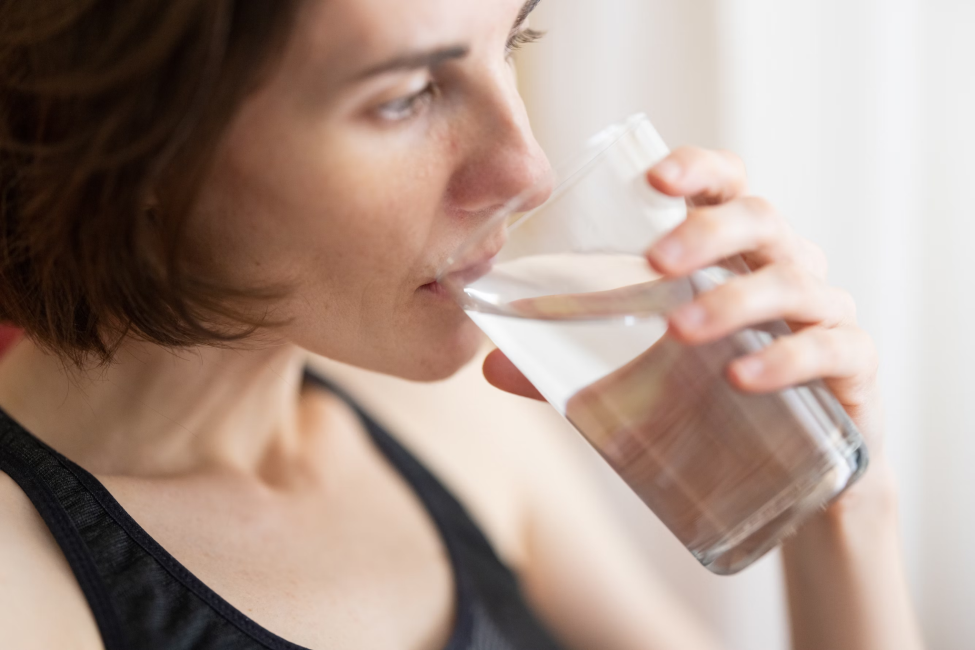Water makes up most of our body’s composition; therefore, electrolytes such as sodium and chloride play an integral part in maintaining fluid balance by moving water between cells via osmosis.
These particles are just one of the many activators of nerve and muscle function, blood acidity balance, pressure regulation, hydrating the body, and providing imperative support for neuromuscular systems. Thus, it’s crucial that after intense exercise you replenish yourself with electrolyte-rich foods and beverages to hydrate properly.
An appropriate diet should provide all of the electrolytes your body needs for proper functioning, however, if you find yourself dehydrated frequently or lacking energy levels then this site suggests that additional electrolytes might be required to bring back balance in blood pressure, muscle contractions, and nerve signaling.
These tiny but vital minerals help support functions such as blood pressure control, muscle contractions, and nerve signaling in addition to dizziness, confusion, or even heat stroke when out of balance.
Thankfully, it’s easy because nothing beats water for hydration! It’s free, readily available, and can provide all the electrolytes your body requires for performance during and post-exercise. If plain water doesn’t do it for you, why not add fruit or vegetables as flavors to jazz it up even more?
Fruits and veggies are an excellent source of potassium and magnesium, helping prevent electrolyte imbalances. Simply include one cup of fresh fruit or several glasses of vegetable juice in your daily routine for increased consumption of these vital minerals.
Nutrition-rich food may be the ideal solution, but sometimes that isn’t possible when on-the-go or your schedule doesn’t allow for cooking. For these times, electrolyte-enriched beverages offer an effective solution, but if you’re not sure why – read on to continue your education.

#1. They Conduct Electrical Signals
Table of Contents
Electrolytes are salts that dissolve or dissociate in water to form electrically charged ions, such as sodium chloride table salt which disassembles into positively charged sodium (Na+) and negatively charged chlorine. When dispersed in liquid form these charged ions conduct electricity efficiently.
They serve as conductors, enabling nerve impulses and muscle contractions to travel throughout your body. They play a crucial role in cell communication, helping regulate your internal pH level and maintaining adequate hydration levels in your system.
Each cell in your body needs the right balance to function optimally, with sodium and potassium being key components for this balance both inside and outside cells. They help support fluid balance in your bloodstream – something necessary to maintain normal blood pressure levels as well as proper hydration levels.
Potassium plays a pivotal role in heart health by helping regulate your heartbeat and lowering blood pressure. Unfortunately, however, most people fail to meet the recommended daily intake for potassium which could result in serious heart complications if left unaddressed.
Magnesium is an essential electrolyte, helping your heart by lowering blood pressure, supporting the relaxation of blood vessels, and reducing inflammation (source: https://www.biospherenutrition.co.nz/blogs/magnesium/magnesium-and-blood-pressure). Magnesium plays an integral part in producing and conducting nerve impulses in both brain and muscle tissues.
As an athlete, electrolyte balance is of great significance to maximize performance. A lack of important minerals could cause cramps, fatigue, and dehydration which would negatively impact performance and hinder recovery time.
Your body can easily obtain all the electrolytes it requires from food sources such as fruits, vegetables, sports beverages, and supplements; however, excessive supplementation should be avoided at all costs to prevent harm to health. Before adding electrolyte supplements to your diet plan, always consult your physician first.
#2. They Help Your Heartbeat
Many automatic processes in your body rely on small electric charges called electrolytes to function, including nerve impulse transmission, muscle contraction, and blood pressure regulation. Your kidneys create and regulate this balance of them in your blood, tissues, and other fluids while you can also get them from foods and supplements.
An imbalance of them can cause heart palpitations. Athletes typically feel this symptom more frequently; however, anyone can be affected. A 2016 study published by Methodist DeBakey Cardiovascular Journal followed 26 triathletes competing in a 70.3-mile race where half consumed sports drinks with added electrolytes while the other half took placebo drinks. In the end, researchers discovered that those receiving added electrolytes completed their race an average of 26 minutes faster.
They appear to help athletes’ hearts work less hard during races and allow them to maintain optimal hydration levels while exercising.
Electrolyte imbalances can produce various symptoms, from headache and dizziness to seizures and heart rhythm disturbances. The good news is that correcting these imbalances typically only requires making some simple dietary adjustments and forgoing sugary beverages like soda.
Water accounts for more than half the weight of your body, and electrolytes move in and out of cells to help balance water content across various compartments in your body. Some health conditions may interfere with the kidneys’ ability to transport and balance electrolytes efficiently and cause an imbalance.
Salt (sodium) is an electrolyte found throughout your blood and body fluids, including those inside cells and their fluid environments. Along with chloride, potassium, calcium, magnesium, and bicarbonate, sodium helps your kidneys regulate electrolyte amounts in your body fluids to support nerve and muscle function and balance pH levels within your system.

#3. They Help Your Brain Function
Keep your electrolyte levels balanced to maintain proper neurological, cardiovascular, and muscular health. Electrolytes contain either positive or negative charges found in body fluids like blood, urine, and sweat; examples include positively charged sodium (Na+), potassium (K+), and calcium ions, as well as negatively charged chloride and bicarbonate ions – too little or too much can have detrimental health implications.
The brain is an intricate organ that relies on precise concentrations and gradients of electrolytes for proper functioning. For example, neurons carrying nerve impulses from nerve endings to muscles and the heart requires potassium and magnesium levels balanced perfectly to transmit these nerve signals effectively.
Electrolyte imbalances may impede this process, leading to symptoms like muscle weakness or cramping. Electrolytes not only aid nerve transmission, but they also assist in maintaining the correct pH balance in our blood.
This is integral since maintaining an alkaline pH level helps eliminate disease-causing bacteria while supporting immune functions and maintaining overall good health. Electrolytes like sodium bicarbonate help buffer acidity levels within our system to keep this desired slightly alkaline state of balance within our bodies.
Your kidneys play another role in keeping electrolyte levels balanced in your blood, stool, and urine; however, intense exercise or certain health conditions can alter these levels and create an electrolyte imbalance that needs to be corrected immediately.
An electrolyte imbalance can often be corrected through diet and water consumption alone. Eating electrolyte-rich foods or adding supplements to your water can help ensure optimal hydration levels for good electrolyte balance and healthy hydration levels.
Diets rich in fruits, vegetables, grains, and dairy foods may provide enough electrolytes. However, if you engage in vigorous physical activity or are suffering from chronic health conditions that cause sweating or vomiting that depletes your body of hydration minerals then additional natural electrolyte boosters may be required to ensure equilibrium is maintained. However, you should consult your physician about which option would best meet your individual needs.

#4. They Help Your Body Maintain Hydration
After an intense workout, especially if we have been sweating profusely, it is recommended that we consume electrolyte-containing beverages to rehydrate our bodies and restore electrolytes that have been lost through sweat. Electrolytes play an integral part in hydration.
Electrolytes such as sodium, potassium, calcium, magnesium chloride, and bicarbonate help ensure fluids reach where they’re most needed in your body – helping maintain an ideal fluid balance that ensures normal kidney function and blood pressure regulation.
Electrolytes can easily be obtained through food and drinks such as fresh fruits and vegetables, milk, yogurt, broth, and sports drinks. You can even get them in powdered form to add to water or use as post-workout recovery drinks. It is important to remember, though, that they don’t provide as much hydration as plain water does but may support faster hydration through passive hydration techniques.
Your body loses electrolytes through sweat, diarrhea, and dehydration, all of which can contribute to an imbalance in electrolyte levels resulting in mild temporary symptoms or serious long-term health conditions.
Any condition that leads to excessive fluid loss can wreak havoc with your electrolyte balance, including fevers, diarrhea, and vomiting, and cancer treatments like chemotherapy (source: https://www.roswellpark.org/cancertalk/202308/electrolytes-what-are-they-what-happens-if-you-dont-have-enough). These conditions and treatments may disturb the balance between cells in your intestine where most of your electrolytes reside.
Electrolyte imbalances can be easily identified through blood testing or symptoms that indicate their presence, like muscle cramps. Your doctor may suggest drinking an electrolyte beverage to try and alleviate them.
Assuring healthy electrolyte levels requires drinking plenty of fluids and avoiding high-sodium foods and beverages such as processed or canned soups and soda. Selecting an electrolyte beverage without too much added sugar may also help prevent overhydration as these drinks tend to cause your body to release water more rapidly than water itself does. In severe cases of dehydration, it’s a good idea that medical assistance be sought immediately.

